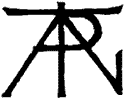 |
||||||||||||||||
 |
||||||||||||||||
| Wednesday Night Workshop on thursdays | ||||||||||||||||
| The Wednesday Night Workshops—traditionally held on Thursdays—are special workshops we design among ourselves to explore topics of interest which complement our regular class studies. They are fewer weeks long than a regular term and anyone can attend. They are held in my home. We take turns bringing dessert. Below are some examples of workshops we designed between 1992 and 2000. |
||||||||||||||||
| Intro to Interpretation: Play Script and Film Versions | ||||||||||||||||
| top | ||||||||||||||||
|
||||||||||||||||
| Voices of Vocal Authority: Politician and Poet | ||||||||||||||||
| top | ||||||||||||||||
| Each student will prepare and perform the text of one political speech and one poem. | ||||||||||||||||
| Listening selections for the course: | ||||||||||||||||
| 1. John F. Kennedy: UN Address, September 26, 1961 2. John F Kennedy: Berlin Wall, June 26, 1963 3. John Gielgud: Sonnet 29, William Shakespeare 4. Franklin D. Roosevelt: Inaugural Address, 1933 5. Hitler (radio snippet only, c. 1933) 6. Maxim Gorky: First Congress of the USSR Writers’ Union, 1934 7. Vladimir Mayakowsky: poem addressed to The Sun, recorded on wax cylinder, 1922 8. Billy Sunday: opposing the repeal of prohibition, c. 1933 9. Sermon, Black Southern Baptist, from FM radio (1988) 10. Richard Burton: Now as I was young… from Anthology of Classic Poetry |
||||||||||||||||
| Life Before NEA and PC or The Dark Impulses | ||||||||||||||||
| top | ||||||||||||||||
| Art is, in fact, a magic incantation. Obscure homicidal forces lurk in our entrails, deadly impulses to kill, destroy, hate, dishonor. Then art appears with its sweet piping and delivers us. –Kazantzakis | ||||||||||||||||
| We will be reading selections from the following: | ||||||||||||||||
| Incest, Blasphemy The Outrageous Saint, Lope de Vega (1562-1635) The Cenci, Shelley (pub. 1820) Don Carlos, Schiller (1787) Pericles, Shakespeare (pub. 1609) ‘Tis Pity She’s a Whore, Ford (1633) Ravages of War The Siege of Numantia, Cervantes (1585) Skin of Our Teeth, Wilder (1942) Yes is For a Very Young Man, Stein (pub. 1949) Ruzzante Returns From the Wars, Beolco (1520-42) Venereal Disease Ghosts, Ibsen (1881) Post-Retirement Romance When We Dead Awaken, Ibsen (1897/9) Feminism, Multi-Culturalism Lysistrata, Aristophanes (411 B.C.) Visually and Physically Handicapped The Oresteian Trilogy, Aeschylus (458 B.C.) The Intruder, Maeterlinck (trans. pub. 1892) Richard III, Shakespeare (1593) Ghost Sonata, Strindberg (1907) The Glass Menagerie, Tennessee Williams (1945) Prostitution The Lulu Plays, Wedekind (1903) Sex Education Spring’s Awakening, Wedekind (1890/91) Physical Abuse Punch and Judy, Traditional (pub. 1860) Excessive Violence The Grand Guignol, anthol. ed. Mel Gordon (1897-1962) Profanity The Ubu Cycle, Jarry (1896) Other Issues Addressed in the Dramatic Canon: Homelessness Adultery Abandoned Children Alcoholism Drug Abuse Anti-Semitism Marital Discord Unwanted Pregnancy Insanity Childhood Trauma Rape Failing Political Systems Depression Add some of the others you come across in your reading: |
||||||||||||||||
| The One-Act Play: Texts for Performance (Some Modern Playwrights You Should Know) |
||||||||||||||||
| top | ||||||||||||||||
| 1. Edna St. Vincent Millay: Aria da Capo 2. Jean-Baptiste Moliere, The Precious Damsels 3. Anton Chekhov, The Proposal and The Bear 4. Eugene Ionseco, The Lesson 5. Nathaniel Hawthorne, Feathertop 6. August Strindberg, The Stronger 7. Edward Albee, Zoo Story 8. Ernest Hemingway, Hills Like White Elephants 9. Guillaume Appolinaire, The Breasts of Tiresias 10. Tennessee Williams, Talk to Me Like the Rain and Let Me Listen |
||||||||||||||||
| The One-Act Play: Texts for Performance (A Few More Modern Playwrights You Should Know) |
||||||||||||||||
| top | ||||||||||||||||
| 1. George Bernard Shaw, Overruled 2. Edmond Rostand, The Romantics 3. Edward Albee, The American Dream 4. Tennessee Williams, Lord Byron’s Letter and Lady of Larkspur Lotion 5. Jean Anouilh, Ring Round the Moon |
||||||||||||||||